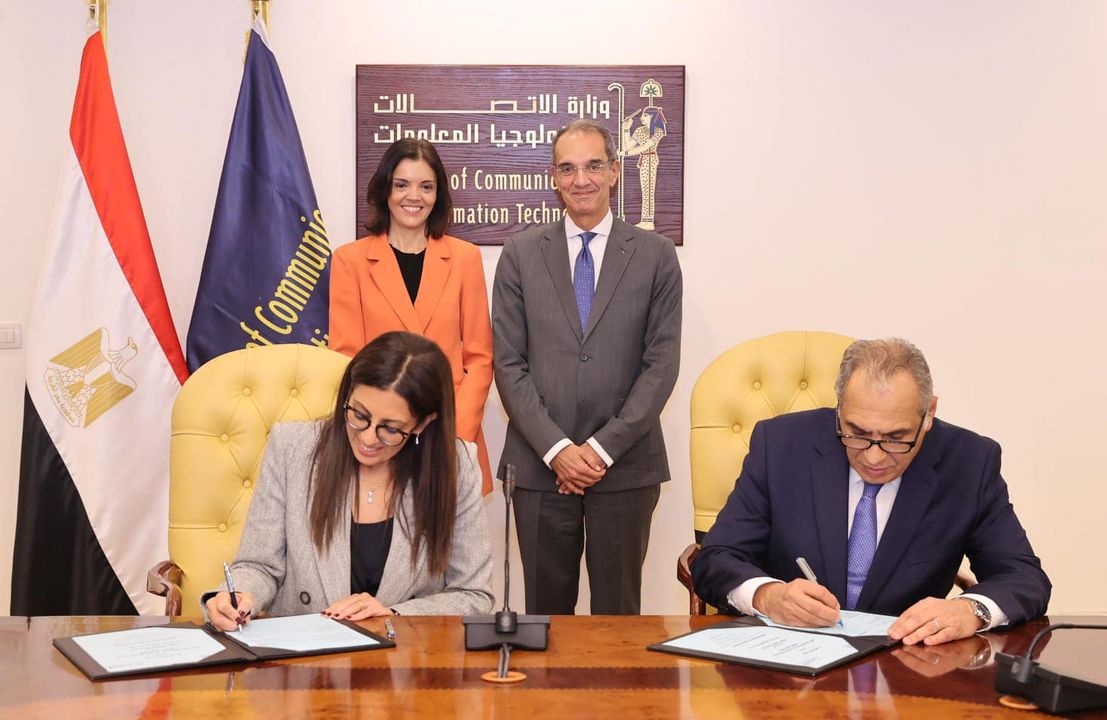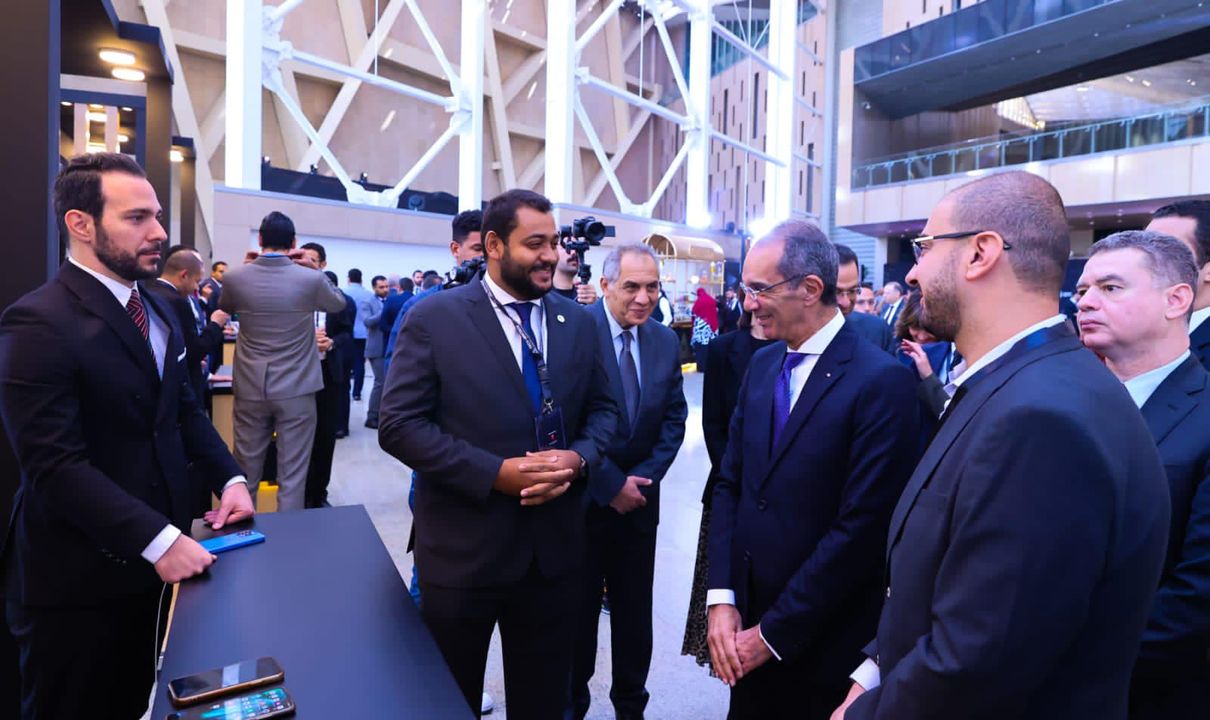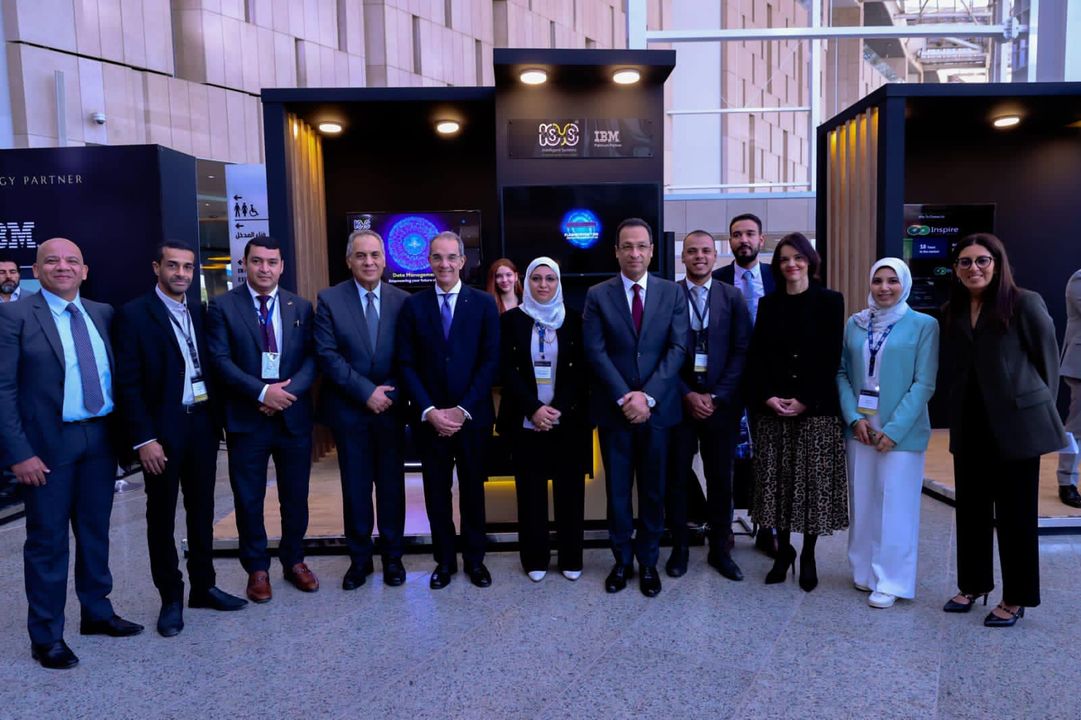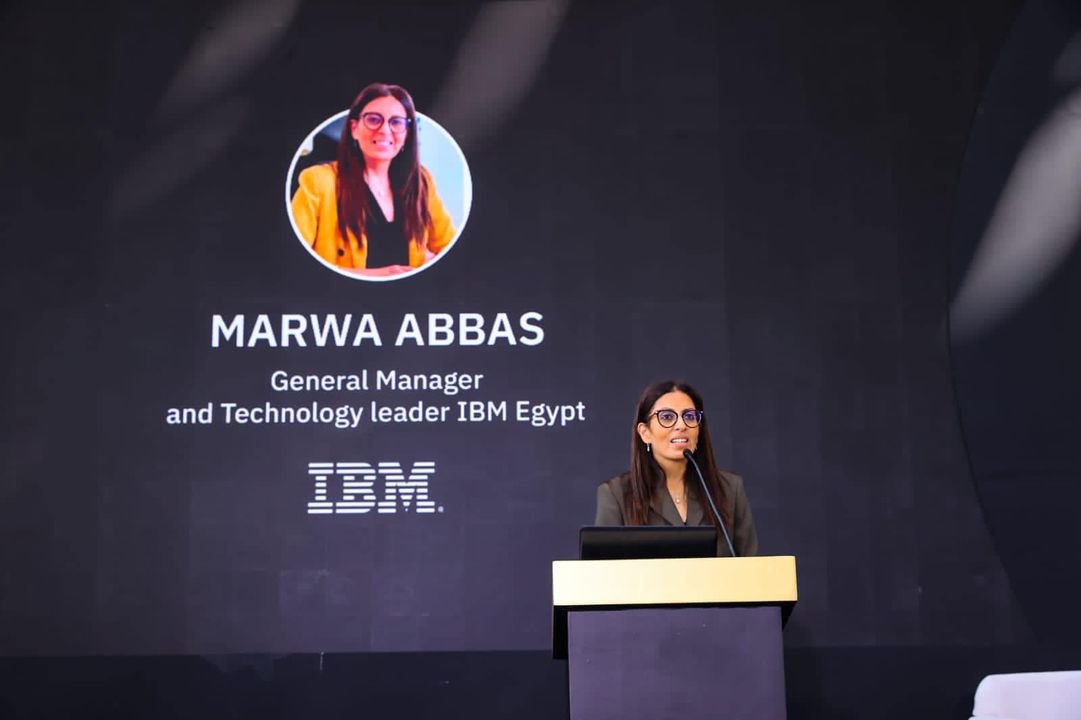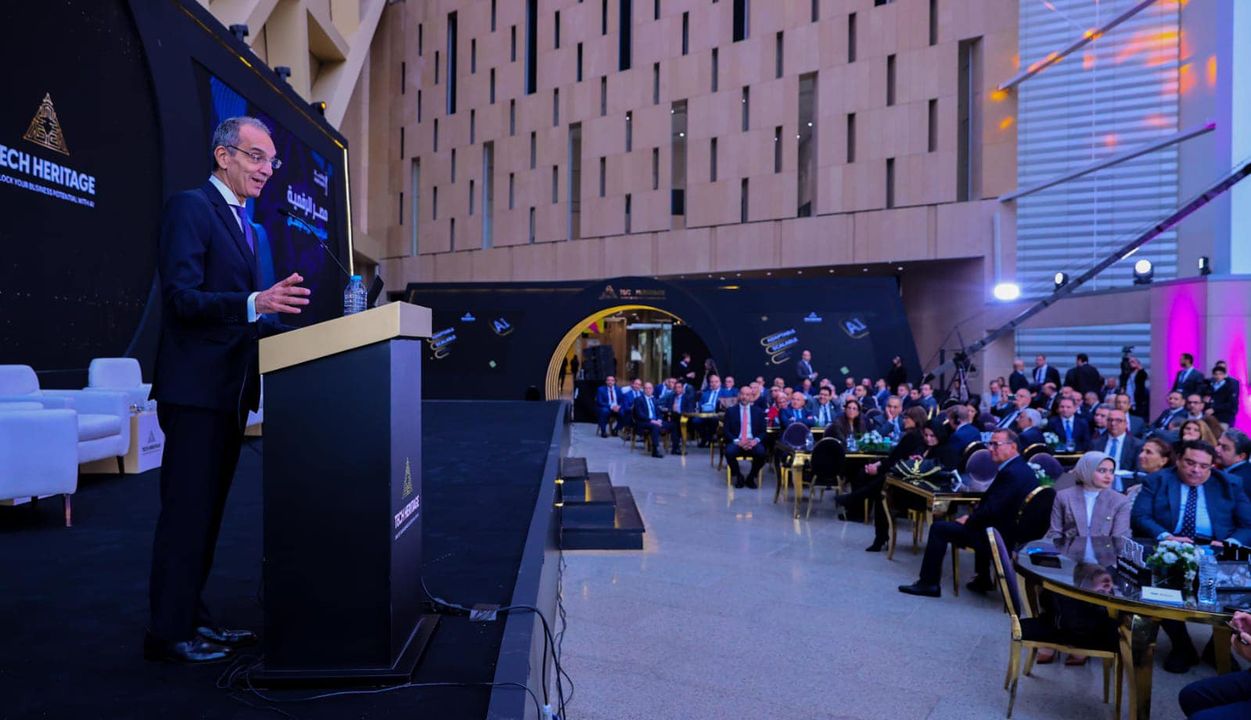The Minister of Communications and Information Technology Amr Talaat has delivered a speech at the IBM Solutions Tradeshow “Tech Heritage.” The event took place at the Grand Egyptian Museum (GEM), under the theme “Unlock Your Business Potential with AI.”
Tech Heritage was attended by Deputy ICT Minister for Administrative Development, Digital Transformation, and Automation Khaled El Attar; Deputy ICT Minister for Infrastructure Raafat Hindy; CEO of the Information Technology Industry Development Agency (ITIDA) Ahmed Elzaher; Chairwoman Europe, Middle East, and Africa (EMEA) at IBM Ana Paula Assis; General Manager of IBM Middle East and Africa (MEA) Saad Toma; Vice President, Hybrid Cloud and AI, IBM Middle East and Africa Mostafa Zafer; and General Manager and Technology Leader, IBM Egypt Marwa Abbas.
The ICT Minister emphasized that the ICT sector has grown by approximately 16.3%, making it the fastest-growing sector in the country for the fifth consecutive year. He further stated that the sector’s contribution to the gross domestic product (GDP) increased from 3.2% in 2014 to 5%. Talaat explained that Egypt moved up on the World Bank’s GovTech Maturity Index (GTMI) 2022, becoming among the countries of Group A, up from Group B in 2020 and C in 2018. He pointed out that Egypt achieved digital exports worth $4.9 billion, with an annual growth rate of about 10%.
During his speech, Talaat discussed the pillars and objectives of Digital Egypta citizen-centric strategyand reviewed the most prominent achievements and future plans. He highlighted that EGP 100 billion was injected to improve Internet connection, an investment that helped increase Internet speed to 61 Mbps up from 5.3 Mbps in December 2017, placing Egypt at the forefront of African countries in the median fixed broadband speed, according to Ookla’s Speedtest.
Moreover, the ICT Minister highlighted that a plan is implemented to replace copper cables nationwide with fiber-optic cables at EGP 150 billion. He underscored that the number of cell towers increased five-fold in nine years with investments of EGP 110 billion, to increase from 6,976 to 34,641 cell towers. He pointed to Digital Egypt Platform, which contributes to improving government performance. The Platform now provides 168 digital government services, with investments of EGP 32 billion. Projects with investments of EGP 55 billion are implemented to attain digital transformation in all state sectors, he added.
The ICT Minister further stated that ICT projects are implemented in the rural villages targeted within the Decent Life initiative, at approximately EGP 55 billion, as part of the Digital Decent Life initiative. Projects include installing fiber optic cables to provide high-speed Internet to 9.3 million buildings and improving the quality of telecommunication services by building and developing 2,700 cell towers. Other projects include modernizing 1,700 post offices and promoting digital literacy for 500,000 citizens.
Talaat explained the efforts of the Ministry of Communications and Information Technology (MCIT) in building digital capacity. The Knowledge City is being established in the New Administrative Capital to serve as a human development hub, stated the ICT Minister. He remarked that MCIT increased the training budget and the number of trainees from 4,000 in 2018-19 with an EGP 50 million budget to 400,000 trainees in 2023-24 at EGP 1.7 billion.
Additionally, Talaat underscored that Creativa Innovation Hubs are established as part of a plan to have a Hub in each governorate. So far, 20 Hubs have been established, with a target to have 26 Hubs in 2024. Talaat also referred to the Ministry’s efforts in boosting digital exports (BPO and IT offshoring services) five-fold, from $1.8 billion in 2020 to $9 billion in 2026.
The ICT Minister revealed that Egypt is among the top three destinations in the region in fostering technology innovation and attracting venture capital, owing to the efforts made to foster technology innovation and entrepreneurship. The ICT Minister pointed out that new innovation centers are created nationwide, one of which is “Imhotep,” an innovation center in the electronics design field, located in Knowledge City. Talaat also noted that the Applied Innovation Center (AIC) of MCIT carries out applied projects capitalizing on emerging technologies such as AI.
In a similar vein, Talaat witnessed the signing of a Memorandum of Understanding (MoU) between MCIT and IBM on using generative AI solutions, automating operations in government institutions, and digitizing public services. El-Attar and Abbas signed the MoU, in the presence of Assis and Toma.
The MoU stipulates that IBM will provide AI experts to train and offer support and consultation to the development team at AIC. MCIT will cooperate with IBM to build and adopt AI models via “watsonx,” IBM’s next-generation AI and data platform, based on the best open technologies available.
For her part, Abbas explained that the IBM-MCIT partnership will help harness AI to transform businesses and societies. Under the MoU, the two sides will collaborate to build AI models via watsonx, provide technical consultations and training to develop AI teams, and ensure that pre-built applications powered by watsonx improve workflows in the public sector.
https://bit.ly/3QLVynY
DigitalEgypt digitaltransformation AI
وزارة الاتصالات وتكنولوجيا المعلومات-مصر
